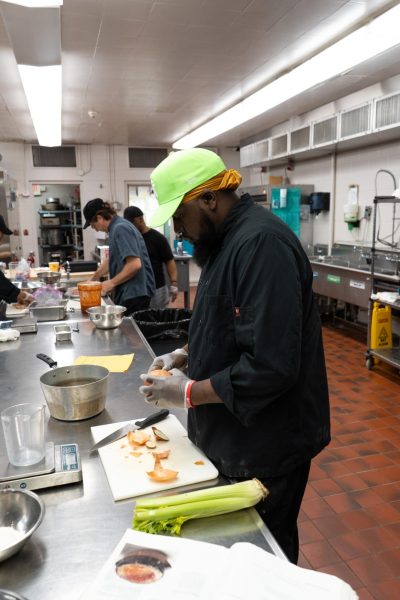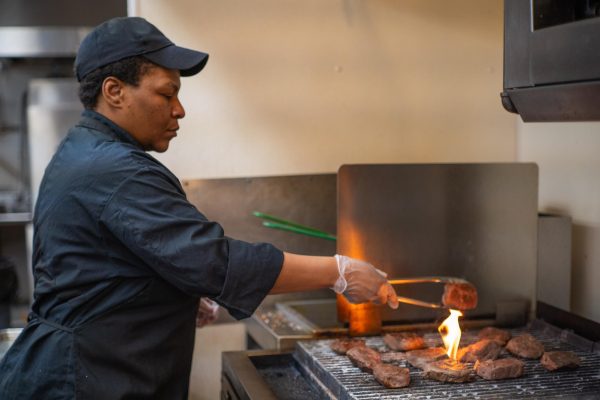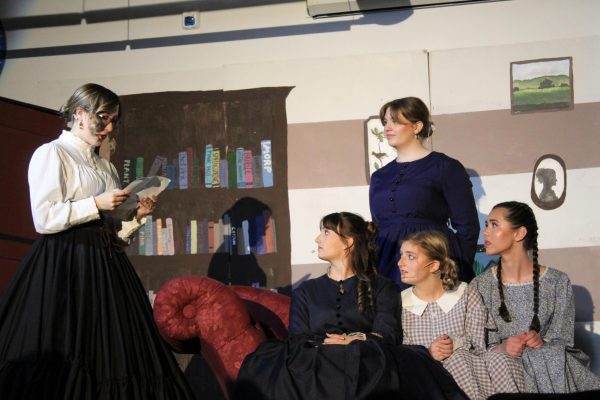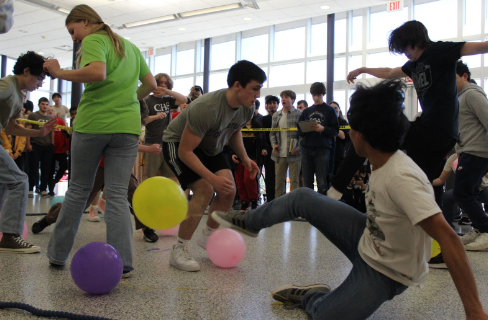Musicians overcome performance anxiety with positive mindset and confidence
June 2, 2021
“I detest audiences,” said the legendary Canadian pianist Glenn Gould.
Frédéric Chopin, one of the most famous composers and pianists of the Romantic era, put it a bit more eloquently, saying “An audience intimidates me, I feel asphyxiated by its eager breath, paralyzed by its inquisitive stare, silenced by its alien faces.”
The anxiety caused by public performance pushed both of these talented musicians over the edge, unfortunately causing them to suppress their artistic careers. At the ripe old age of 31, Gould retired from giving public concerts, choosing instead to focus on the recording studio. Chopin stopped performing for audiences at 26, after which he would only play for small groups of friends.
Performance anxiety is real, no matter the level or the experience of the musician, and it can be devastating. All performers know how crushing it feels to see months of hard work and practice disappear the second after stepping on stage.
Bea Karron, a senior at Communications High School and a lifelong pianist, has personally dealt with this but noted that her confidence with performance has changed over time.
“When I started playing the piano as a little kid, I had no stage fright or nerves before performances and I was super excited to perform all the time. Then I got older and started to worry about it more… I think the switch happened when I made a mistake in a performance one time when I was 11 or 12, and I just blanked and forgot where I was in my piece during a recital in front of everyone,” Karron said. “Now I get quite anxious before performances.”
When it comes to the causes of that butterflies-in-stomach feeling, the question arises of who is causing it onto whom. While Gould and Chopin seemed convinced that the pressure came from the evil workings of the audience, Susan Narucki, a Grammy Award-winning soprano and an instructor of vocal performance at the University of California, San Diego, believes that the pressure comes mostly from the performer themselves, especially for young, high school or college aged musicians.
“You’re only competing with yourself. You’re competing with the best version of yourself,” Narucki said. “I think that there’s a lot of self-scrutiny and it’s a shame to say, but… young people are very hard on themselves. They’re very judgmental of themselves much more so than older people are toward them.”
With the prevalence of social media, today’s generation faces additional pressures that past generations have not. It is easier than ever to compare one’s own performance with recordings on YouTube of the world’s greatest virtuosos, and feel insecure. Sharing personal performances online can also cause additional stress, which, according to Narucki, could be detrimental for developing musicians.
“Everything is judged. Everything is documented. Everything is on this public feedback loop. And I think that sometimes when you’re developing a very personal skill, which is musical performance, it’s good to have a safe place carved out where you can improve and you can grow and everybody’s not watching it all the time,” Narucki said.
The situation of a performance definitely contributes to the amount of stress faced by performers, although it is not often caused by the situation directly. Instead, performers are putting pressure upon themselves to do extra well in situations they view as more important whereas in situations they view as less important, they can relax.
Karron pointed out the difference in anxiety she has felt when performing in different situations.
“At Carnegie Hall, I was super nervous. At a recital at my teacher’s house, it’s not as bad,” Karron said. “The level of anxiety definitely depends on the performance.”
Narucki has done a fair share of high-stakes performances too — as an avid collaborator with living composers, she has given many premieres of new compositions. Yet instead of putting additional pressure on herself because of that fact, she instead chooses to think positively about the situation.
“One of the great things about working with living composers is that you develop a personal relationship with people. The fact that you’re bringing something to life for the first time is a joyful experience. Most of the time, people are just absolutely thrilled that it’s happening. So there isn’t kind of the weight of history,” Narucki said. “You’re creating something, and when you’re creating something, people celebrate, no matter how it goes.”
Working and performing with other musicians can also lead to increased anxiety for some. For Karron, she has felt additional pressure of doing her part right.
“I think [duets] make me even more nervous because I’m afraid that if I make a mistake, it’ll throw my partner off,” Karron said.
Daniella Perveev, a junior at Rumson-Fair Haven Regional High School and a longtime pianist, feels differently, saying that playing in a collaborative environment with other musicians has eased her anxiety.
“It felt easier to play knowing there were lots of other people playing with me and it would be hard to hear a mistake if I did make one,” Perveev said. “Also, it’s just nice to know you’re not alone on the stage and the attention isn’t on you only.”
Narucki feels that collaborating not only leads to a less stressful environment, but also a more positive one, and said that the support from other musicians creates an unparalleled sensation.
“Making music with people that you like, with friends, is the best experience on the planet,” Narucki said. “It is amazing singing with a symphony orchestra. Of course, there’s a lot of pressure to do your part well, but on the other hand, you’re surrounded, you’re just in this environment of sound and you can’t help but feel kind of empowered by it.”
Despite the immense pressure that today’s musicians face, there are ways to help manage anxiety before a performance. Essentially, this involves getting the mind and the body under control, but the process can be different for different people.
“I’ve just tried to relax, and I mentally go through the notes in my head while I’m waiting to perform,” Karron said.
As a teacher, Narucki has worked on the idea of relaxation with her students. In singing, where the voice is the instrument, maintaining control of breathing is crucial for staying calm and performing well. She also recommends working on repertoire pieces backward, so that the end is the most confident part. This can create a sense of relief when performing. Most importantly, the act of doing public performances will help, because over time it will begin to feel less stressful.
“It’s just important to get up in front of people as often as you can and play for other people. It’s not the same when you play for yourself because when you know somebody is listening and when there’s another human being in the room, then you’re communicating,” Narucki said.
Perveev acknowledged that her performance anxiety is often a self-produced worry about making mistakes. She said that getting into the right mindset and understanding the bigger picture can help overcome those obstacles.
“I try to think about how it doesn’t really matter whether I mess up or not. No one’s going to remember if I miss a note, they’re more likely to remember the overall piece, not just one mistake,” Perveev said. “It’s easier to just let yourself go and have fun and get into the music you’re playing.”
Narucki stresses the idea of maintaining the right mindset, believing that it is the secret for both performing well and enjoying the experience, even if it doesn’t go exactly as planned.
“I was taught by my teachers to think very positively, to utilize the power of my mind in order to deal with these very competitive, stressful experiences. But still, they are wonderful experiences,” Narucki said. “It’s all a matter of how you look at it and how resilient you make yourself.”
Liam Umbs is the outgoing co-Editor-in-Chief of The Inkblot and a member of the class of 2021. He will be attending the University of Pennsylvania.










